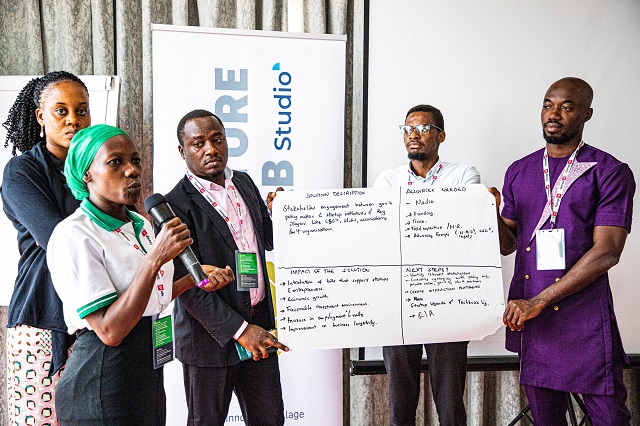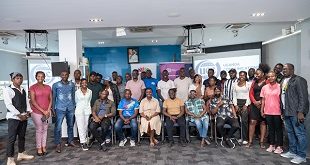
Kampala, Uganda | THE INDEPENDENT | Uganda’s young start-up entrepreneurs have a positive mindset but need technical and education skills support to realize their full dreams, according to Joao Rei, a host and mentor of the Estonian-based Garage 48, a startup hackathon series turning ideas into working prototypes.
Joao, who spoke to The Independent in an interview on the sidelines of a two-day 3rd Startup Community Workshop at Skyz Hotel in Kampala on May 25, said the high appetite for hackathons has demonstrated that the country’s youths have strong interest in entrepreneurship.
“On Uganda’s start-up technical know-how, we think it is comparable to the rest of the region – Kenya, Rwanda and Namibia where we have held hackathons. The difference with Estonia is just the maturity of the eco-system,” he said.
“There’s no secret to Estonian success other than good education system that fosters tech talent, IT skills and the mindset – which is already here. So tech and education skills need to be worked on.”
Estonia, a small country with 1.3 million people has been known for growth of start-ups including the famous Skype and Bolt, a tax-haling firm.
Joao said it is always not the case that the government will support growth of start-ups. He said Estonia has been able to see rapid growth in start-ups because investors in the successful start-ups have been able to support the new ones as well as the entire start-up eco-system.
In some incidences, he said, some employees in the well established companies have been able set up their own companies.
He said coronavirus pandemic could have eroded grant opportunities for start- ups, signaling the need for the new businesses to now rely on market approach for their growth.
“There’s need for self-reliance than relying on grants. It wouldn’t be easy but in the long run will be positive for the ecosystem,” he said.
Prince Bonney, the founder ICODE in Ghana, which supports start-up entrepreneurs, however, says despite of the challenges that entrepreneurs face including limited access to funding and markets, governments have a role to play for their growth.
He, for instance, said Ghana unlike Uganda, has tax holidays for early stage business for up to a period of 20 years to enable them scale up their operations and so are job opportunities for the population.
He said the Ghanaian government also provides funding to promising start-ups to a certain level that they are now able to sustain themselves.
“As a start-up in Ghana, you can also apply for labour force from the national service secretariat to support your business,” he said.
“The government pays people for them to work for you as you strive to build your business idea. We believe that if certain common practices are shared across the African start-up ecosystem, they will help develop and grow start-ups because government is the enabler.”
This year’s workshop, according Arthur Mukembo, the Lead FutureLab Studio at Innovation Village, was to reflect on how providers of support services to start-ups can help founders build best business ideas.
The workshop, which was organised by Garage48 and Estonia Centre for International Development in partnership with The Innovation Village, attracted 70 participants drawn from the leading hubs, incubators, accelerators and other entrepreneur support organisations from Uganda, Kenya, Tanzania, DRC, Somalia, Ghana, South Africa and beyond to share their experiences and the way forward.
“We wanted to reflect on the best ideas on how we can support them (start-up entrepreneurs) and position them for success across the entire lifecycle from idea to exit,” Mukembo said.
“We are looking at how we can come together to create an environment where we are showcasing successes and leveraging on those successes to galvanize a broad support as possible not just locally but across the ecosystem and internationally so that we can tell our stories and be able to get capital and market linkages to help our entrepreneurs thrive.”
The previous two start-up workshops focused on building business resilience as a result of coronavirus pandemic.
 The Independent Uganda: You get the Truth we Pay the Price
The Independent Uganda: You get the Truth we Pay the Price



Who Owns Africa